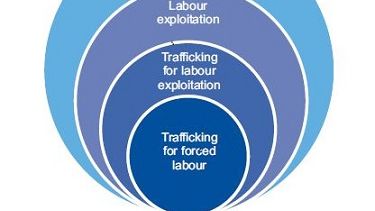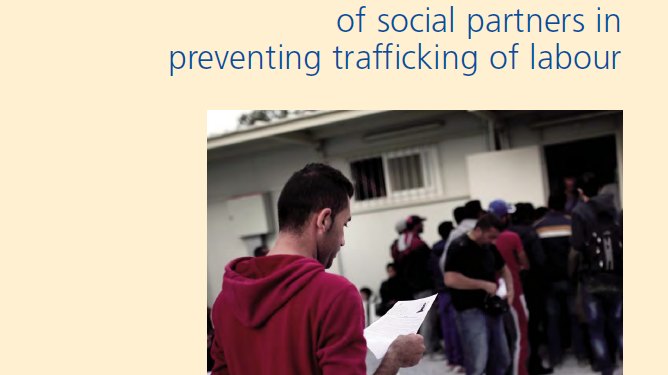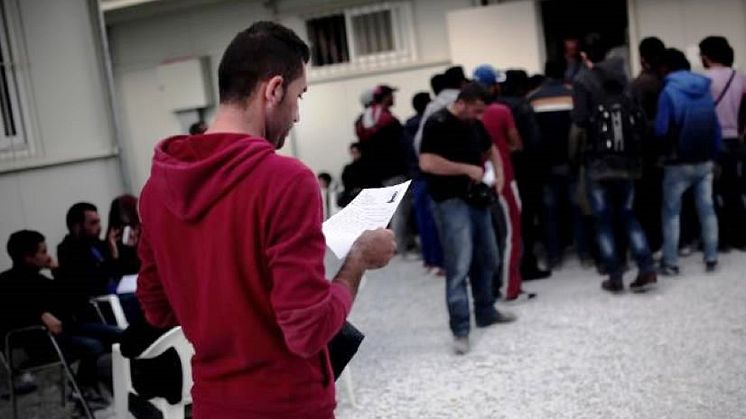
News -
Role of social partners in preventing trafficking of labour
The figure on the left – from Eurofound’s report Regulation of labour market intermediaries and the role of social partners in preventing trafficking of labour – illustrates how breaches in labour rights can potentially culminate in trafficking for forced labour. In some cases, labour market intermediaries recruit or transfer workers unlawfully, deceiving workers about the nature of the job, the employer, the location or other conditions related to the work, and these workers end up working under exploitative conditions. The research points to the need for greater commitment and cooperation between the social partners and public authorities in order to combat trafficking for labour exploitation. The report was presented to MEPs at a working lunch in Brussels on 27 April last. Download the report here.



